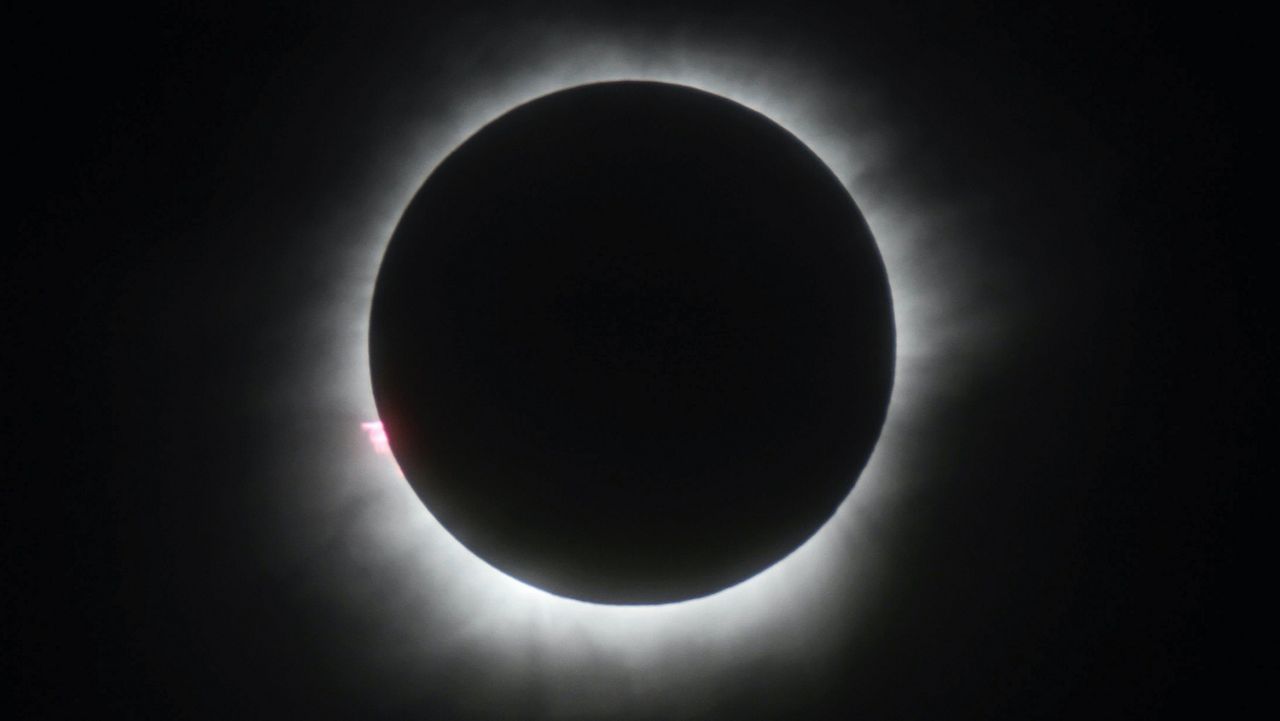AUSTIN, Texas — The University of Texas at Austin is helping to make this year’s total solar eclipse more accessible for people who are visually impaired and is asking for volunteers to help.
A large strip of Texas will be in the path of totality for the total solar eclipse on April 8, so the UT Austin Astronomy Department is partnering with the LightSound Project to build over 750 devices that convert light to sound.
The department is asking for volunteers to come to a workshop Sunday and Monday to help build 300 LightSound devices to donate to the blind and low-vision community. The workshop’s website says no experience is required, and volunteers will be taught to solder.
The workshop will be held at UT Austin’s Astronomy Department, located at 2515 Speedway, Stop C1400, in room PMA 13.132.
The LightSound Project was started at Harvard University, and its devices were first used as prototypes for the 2017 North American eclipse.
“The device uses a technique called sonification which is the process of converting data (or light intensity in this case) to sound,” the project’s website said. “As the Moon eclipses the Sun during a Solar Eclipse the sunlight begins to dim and the LightSound device will output a change in musical tone.”
Volunteer times for the workshop are available online to sign up and are in two-hour increments that start Sunday at 10 a.m. until 4 p.m. and Monday from 9 a.m. to 1 p.m.



